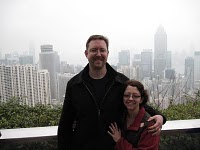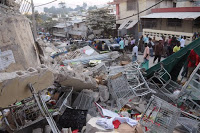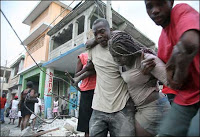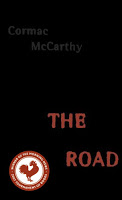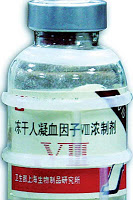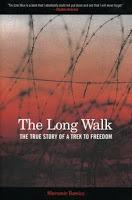Everyday Heroes: The Luckeys Adopt Lu Feng
In a heartbreaking week, watching the aftermath of the earthquake in Haiti, at least we have some good news: Lu Feng, a Chinese orphan with hemophilia, will be coming to his new home in America. And so many of you helped bring him here!
We learned about Lu Feng through an adoption agency and decided to send an email to our readers. Within one week a family had stepped forward and was approved! The Luckey family of Michigan includes Jay, who has hemophilia and an inhibitor. They invested $10,000 of their own money, but fell short of the up to $25,000 needed to adopt. We offered to help and reached out to everyone on our email list. Within 48 hours we had raised $17,000!
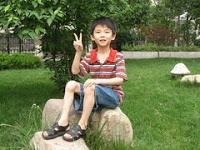
Shari and Dave are in China right now, preparing to bring Lu Feng home. What a lucky child indeed!
Shari writes:
“Laurie, we want to thank you and the hemophilia community so much for helping us to realize this wonderful opportunity to enrich the life of our new son, while he enriches our lives and completes our family. We are so anxious to finally meet him. We know things will not be easy for a while, but we have faith, that this is what God has planned for our family and with His help, we will get through the hard times and come out even stronger on the other side. Lu Feng comes home February 7!
“Thank you again…this wouldn’t be happening, without the part you all played in the plan!”
I just read Shari’s blog about the trip, and today she went shopping for a backpack and some clothes for Lu Feng. Tomorrow she gets to meet him for the first time!
Shari and Dave, like so many who adopt, are true heroes to me. Thanks for giving us such joyous news during such a sad week internationally. I’ll write next week about how the meeting with Lu Feng went!
The bond that links your true family is not one of blood, but of respect and joy in each other’s life. – Richard Bach
Great Book I Just Read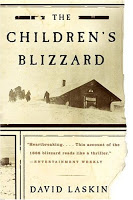
The Children’s Blizzard by David Laskin
On January 12, 1888 a horrific blizzard hit the Midwest that slashed temperatures 40 degrees within minutes. Caught in the blizzard, with lashing winds and temperatures about 40 below, were scores of children who were attending school. Without realizing the plummeting temperatures, most teachers sent the children home, and most never made it. This mesmerizing and heartbreaking tale delves into the reasons why so many pioneers ventured to the harsh prairies of the west, especially the Mennonites and Nordic immigrants, how they suffered so many losses simply trying to farm and raise children. Life was already especially difficult, and then came the blizzard. Laskin analyzes the US Signal Corp and what role they played in not being able to predict the sudden drop, and allows us to get to know many of the families personally. This makes it all the harder to read it to the end. How some of the children survived, and how they risked their lives to protect siblings and friends is amazing. Three stars.

